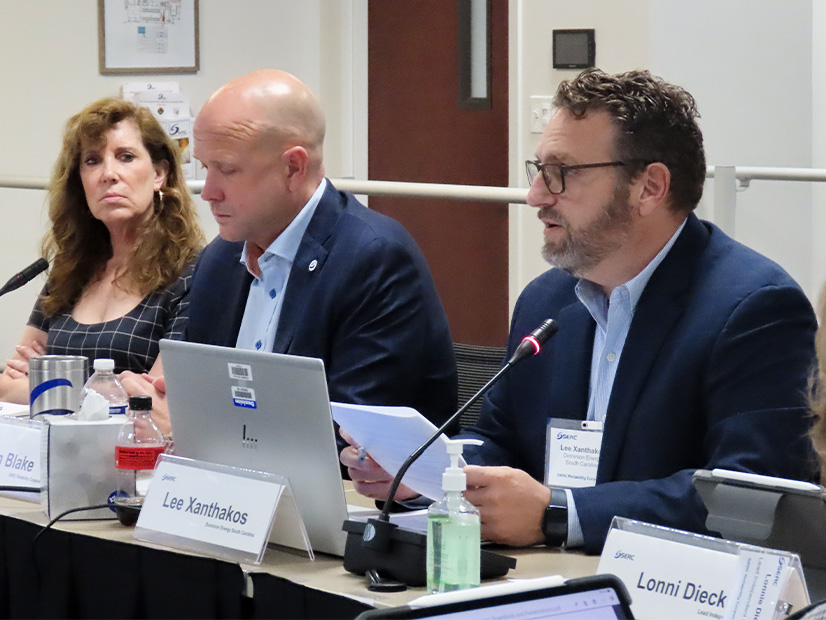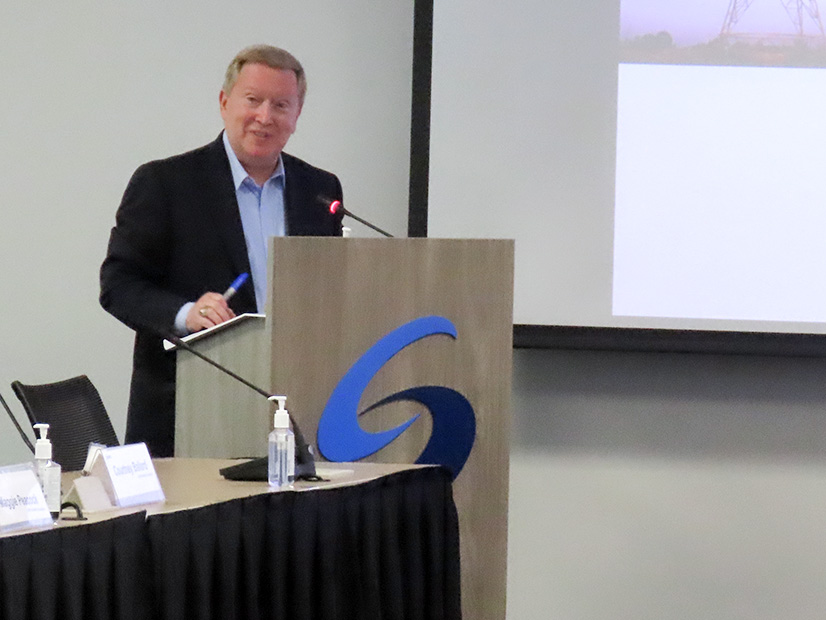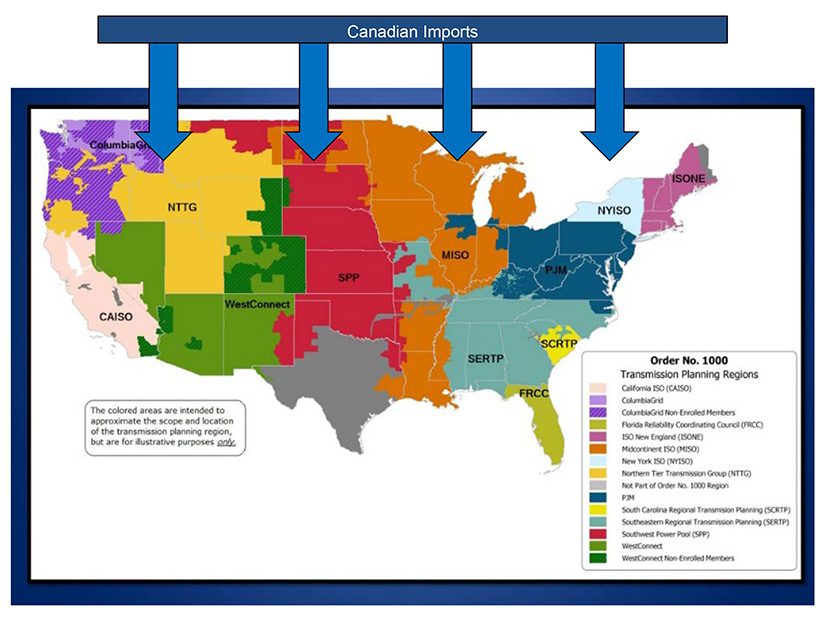
CHARLOTTE, N.C. — SERC Reliability’s Tim Ponseti said Wednesday that the regional entity’s stakeholders will be “well represented” in the group advising the ERO on the congressionally mandated Interregional Transfer Capability Study (ITCS).
“We … have six major reliability coordinators at play within the SERC footprint, and each of those are around 45,000 MW [of] peak load or more,” Ponseti, the RE’s vice president of operations, said at SERC’s Board of Directors meeting Wednesday. “So you can see the significance.”
The ITCS was a significant focus of the meeting, reflecting the urgency with which the ERO views the task. Congress ordered the study in June as part of the Fiscal Responsibility Act (FRA), requiring NERC and the REs to submit a report to FERC by December 2024 on the total transfer capability between neighboring regions, additions to transfer capability that could improve grid reliability and recommendations to meet and maintain total transfer capability. (See FERC Approves NERC Transfer Study Funding Request.)
SERC and the other regions are central to the study process, Ponseti said as he explained the organization of the study. The ERO Executive Leadership Group will be in overall control of the project; Ponseti said he and his counterparts from other REs will serve on this body, led by Mark Lauby, NERC’s chief engineer.
Two teams will serve below the executive group: the ERO Project Team, led by NERC Director of Reliability Assessment and Performance Analysis John Moura, and the ITCS Advisory Group, comprising industry stakeholders who will provide advice and input on the study scope, approach, results and recommendations. Ponseti said the makeup of the advisory group should be announced “in the next week or two,” and that SERC stakeholders will comprise “a fourth or a fifth” of participants.
The FRA specified that the ERO’s study is to be based on the transmission planning regions identified in FERC Order 1000. However, Ponseti noted that the order “came out some time ago” and several of the regions have “shifted, merged, combined [or] split” in the following years. He did not go into detail about how the team would account for these changes, saying only that members would “be taking it as we feel appropriate from an electrical standpoint.”
While NERC and the regions are moving ahead at full speed with the study, there are potential stumbling blocks ahead. Rebecca Poulsen, SERC’s assistant general counsel, noted that Sen. Dianne Feinstein (D-Calif.) introduced a bill in July (S.2443) containing language that would repeal the order for the ITCS in the FRA.
Poulsen said that “we’re not concerned about” the prospect of the bill passing before the deadline for the study arrives. But she said that it was important to remember “there are still some political discussions going on about whether the study should be done or who should be doing the study.”
Director Roger Clark, of Associated Electric Cooperative Inc., said he recognized that “transfer capability is a tool to solve reliability” and supported the aims of the study. However, he also pointed out that “transfer studies have been done forever” and that transfer capability is just a single part of an equation that also must consider elements such as the cost of building the required transfer capacity. Noting that Ponseti said the study would not recommend specific projects, he asked if any “cost allocation implications [would] come into this process.”
“It’s certainly not going to be the objective of this … study to say, ‘Build a 5-million-kV line from point A to point B.’ It’s going to be broader than that,” Ponseti replied. “It will say, ‘We need 2,000 MW of additional transfer capability, or 5,000 MW,’ [for example]. The how, when, why and how it gets paid for will be left for future discussion.” Later he added that “it’s not just megawatts.”
Ponseti also emphasized that the ERO hopes for the ITCS to have a long-term impact, echoing Moura’s assurance earlier this year that the intent is “not just to submit to FERC and do nothing” in the aftermath. (See NERC Confident in Ability to Deliver ITCS On Time.)




